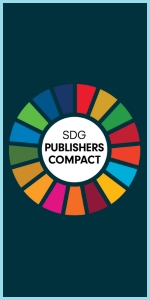Plants produce a number of specialised metabolites to deal with their evolutionally and adaptive challenges. Addition (glycosylation) and removal (deglycosylation) of sugar moiety in these specialised metabolites is very crucial for their functional attributes. This comprehensive review will strengthen our understanding about the role of glycosylation on plant specialised metabolites and respective enzyme families and regulatory elements.

Functional Plant Biology
Volume 49 Number 12 2022
FP22030Waterlogging priming alleviates the oxidative damage, carbohydrate consumption, and yield loss in soybean (Glycine max) plants exposed to waterlogging
 , Cristiane Jovelina Da-Silva
, Cristiane Jovelina Da-Silva  , Natália Garcia
, Natália Garcia  , Fabiane Kletke de Oliveira
, Fabiane Kletke de Oliveira  , Eduardo Pereira Shimoia
, Eduardo Pereira Shimoia  , Douglas Antônio Posso
, Douglas Antônio Posso  , Ana Cláudia Barneche de Oliveira
, Ana Cláudia Barneche de Oliveira  , Denise dos Santos Colares de Oliveira and Luciano do Amarante
, Denise dos Santos Colares de Oliveira and Luciano do Amarante 
Waterlogging is major environmental stress threatening crop production and food sustainability. Soybean [Glycine max(L.) Merr.] plants exposed to waterlogging alter their metabolism leading to reductions in plant growth and yield. However, the exposure of soybean plants to waterlogging at the vegetative stage prevents the decreases in grow and yield when plants experience waterlogging during the reproductive stage. Thus, priming soybean with waterlogging is interesting, economical, and sustainable alternative to minimise yield losses in soybean cultivated in regions prone to waterlogging.
Synthetic promoters have become efficient and incredibly powerful component for precise control of targeted plant transgene expression. It can conceivably drive transcription in cellular contexts in which existing promoter options are not ideal. Synthetic promoters are probably required for coordinated transgene expression for metabolic engineering and synthetic circuit applications in plants for bioenergy and advanced crop engineering.
A comparison among four light emitting diode (LED) and greenhouse lights was made to see how light quality may improve metabolism of rosmarinic acid and amino acids in lemon balm (Melissa officinalis L.). Plants had better growth under LED treatments in comparison to greenhouse light. The mixture of Red + Blue LEDs led to better morphological characteristics and a higher amount of primary and secondary metabolites and amino acids.
The plants that feed society are predominantly glycophytes sensitive to high salts. However, extreme temperatures accompanying salts may limit plant growth more than salt stress alone. This functionality is less understood; so we analysed co-operation of the genes AtNHX1 and AtSOS1 under combined stress. Double transgenics increased combined tolerance by triggering abscisic acid induced and osmoprotectant genes. Analysing transcriptional responses regulating growth facets of tolerant transgenic genotypes may support ongoing efforts to achieve combined plant salt and heat tolerance.
FP22101Differential responses of Pleurochrysis sp. (Haptophyta) to the effect of copper and light intensity
This study revealed new aspects of Pleurochrysis sp. physiology, a coccolithophore that causes massive ‘blooms’, affecting the circulation of biogenic and mineral substances in the marine environment. Two main conclusions are: (1) measure of coccolithophore cells abundance in the sea in summer based on satellite information gives underestimated data relative to real values as only cells covered with coccoliths are registered; and (2) the morphophysiological peculiarities of coccolithophores allow them to vegetate in waters under high anthropogenic load.




